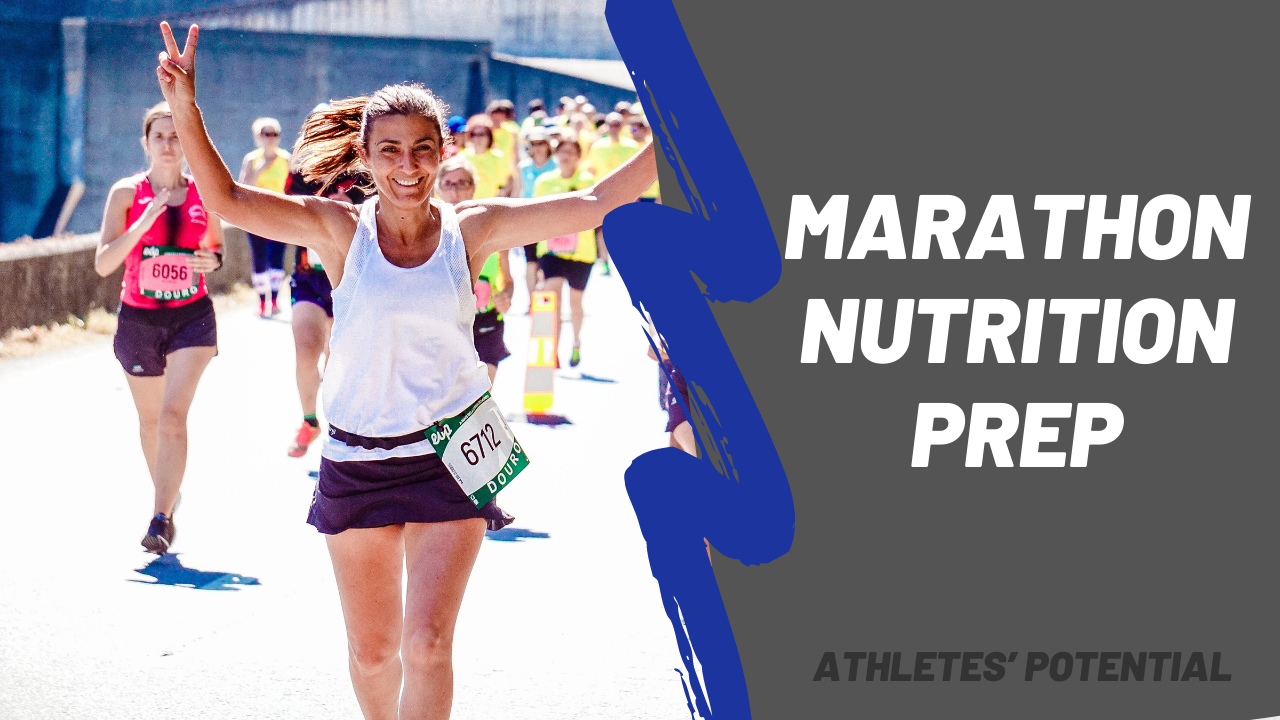Marathon Nutrition Prep
Nov 23, 2021
I have recently had quite a few people training for their first full marathon! One of the most common questions I get asked is: What should I eat before and during a marathon? Well, if you are racing soon, stick to eating the same meals you eat before your long training runs. Try to remain consistent with your eating habits throughout the training process once you discover what nutrition works best for your performance. Race nutrition includes fluid intake the days leading up to the race, dinner the night before, breakfast the day of, and supplements during your run.
Whatever you do, avoid making any drastic changes in your behavior before or during the race.
Dinner: For dinner you want to eat good complex carbs (vegetables and grains), a medium amount of protein (fish or chicken are my go-to choices), with a small amount of high quality fat. Avoid eating high fiber foods and foods with high fat content the night before the race as they are tougher to digest and can lead to GI problems during the race (i.e. beans or lentils). Again, try to remain consistent with your eating habits and don’t try anything too different before your race (common theme).
Late Night Snack: If you have a difficult time waking up to eat an early pre-race breakfast, you can try eating a late snack. This also comes in handy if you have traveled or changed time zones for your race. Try to mimic what you would eat for breakfast the day before a race (simple carbs and a little protein).
Breakfast: Try eating breakfast at least two hours prior to the start of the race. You do not want to eat too close to the start time or you will have to continue to digest your breakfast during the race. Your breakfast should consist of mostly simple carbs (oatmeal, bagel, toast, rice) and a little protein (protein shake, egg whites, low-fat Greek yogurt), or something like Kodiak cakes (carbs + protein in one!). Again, avoid high fiber cereals and high fat foods, as these foods are harder to digest and can lead to GI problems during the race.
Pre-Race Snack: An hour before the race you can eat some simple carbs that can easily convert to energy. Fruit with honey is a good option. Oftentimes I will make a fruit smoothie ahead of time for a pre-race snack.
Caffeine: Caffeine is a stimulant that can help with your performance during endurance races and training. If you are used to drinking coffee before your long runs, then go ahead and drink coffee before the race. Be aware that some energy gels and blocks contain caffeine, so test these products out during your long runs prior to race day!
Caffeine can also cause GI distress, stimulate the nervous system, and lead to increased heart rate, and, if consumed in excess, can lead to increased urination. All of these issues can create problems for the endurance athlete. If you are not used to consuming caffeine, then the day of the race is not the best time to find out how you will respond.
During the race: It is good to know what nutrition will be supplied during the race. Some races are sponsored and will have the nutrition supplements of the race sponsor out on the course. For example if they are supplying GU gels, but you are used to Honey Stinger products, then you should plan on bringing your own nutrition for during the race. A good option is to set an alarm on your watch throughout the race to prompt you to drink and eat small amounts on a regular basis. That way, you are more likely to keep on track for your nutrition goals.
One of the biggest issues I see with novice endurance runners is the lack of fluid and energy intake early in the race. It takes time for your body to digest and use the energy you consume. If you wait until you feel thirsty, or start to feel shaky from glycogen storage loss, it’s too late. So, I tell runners to drink and eat early in the race and drink before you feel thirsty. Maintaining hydration throughout the entire race with smaller but consistent amounts is easier on the stomach than trying to play catch-up with large amounts of fluids once you feel thirsty.
After the race: You want to make sure you continue to stay hydrated. If it was an especially hot race, you may need to continue replacing your electrolytes throughout the day with a sports drink.
Make a plan, stick to the plan, and good luck racing!
Thanks for reading,
Sam Gillespie PT, DPT
Let us help you figure out to live your best active life today!
Remember, Movement is Medicine!

